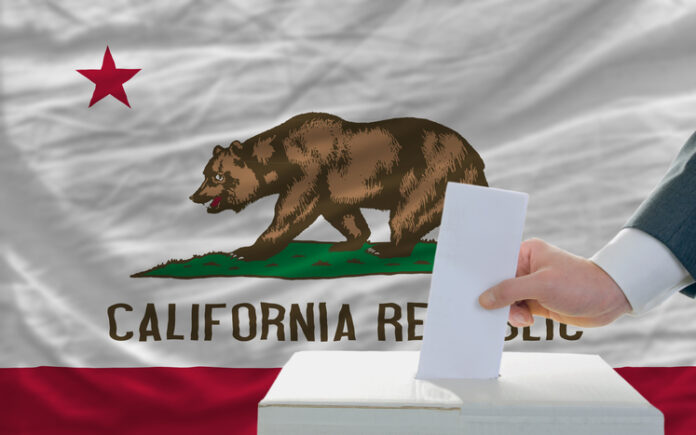The data emerging from Tuesday’s election offers a fascinating possibility: Californians are conservatives who think they’re Democrats. Or, at the very least, the state’s electorate is far more complex than politicos understand. (Ballots are still being counted, and these results may change.)
Rating the ballot propositions as either for or against more government, Californians have (so far) voted against tax hikes on business property (Prop 15), against racist affirmative action programs (Prop 16), against limiting the voting rights of ex-felons (Prop 17), and against expanding the prison population (Prop 20). They absolutely crushed rent control (Prop 21), and in voting for Prop 22 they rejected the government’s decision to tell Californians they can’t work as freelancers without approval from Sacramento.
On three propositions, I’d argue that Californians voted for bigger government: Prop 14’s tax support of government stem-cell research (as if the private sector and universities aren’t already doing enough), Prop 19’s attack on inherited real estate, and worst of them all, Prop 24’s blob of a new government bureaucracy that will monitor “consumer privacy.” If they do the latter as badly as they’ve run the DMV, public schools, road construction, forest management, the utility system, gasoline supply, etc., well, we’re all going to be celebrities in the worst ways.
In short, when it came to thinking about public policy that works, Californians generally voted for the free market. In candidate races, by contrast, where names are often followed by a party designation, Californians voted more often for Democrats than Republicans. The few exceptions—important southern California congressional seats moved from the “D” to the “R” column—proved the rule: California’s state and federal lawmakers are more likely Democrat than Republican. Californians voted for politicians who will support the same big government legislation that the electorate opposed when offered via ballot measure.
How to explain this phenomenon? One possibility is that the Republican brand is damaged, and not (as it would be convenient to suggest) because of the relatively recent arrival of Donald Trump. For decades, the GOP opposed not just many but all of the more libertarian (not say libertine) impulses of Californians. We’re a freedom-loving people, we Californians, and the Republican Party’s opposition to gay marriage or legal weed, for instance, looked increasingly bizarre to younger Californians.
But the most powerful reason for the disaffection of Californians for the Republican Party is the relentless clanging and horn-honking of the leftist machine. Government unions earn nearly $1 billion each year in dues they collect from government workers. They pour that cash into campaigns to elect candidates who, once in office, rubber-stamp the demands of union leaders for higher wages, richer benefits, and greater control over our government and our lives.
In this last election, as in elections going back decades, unions dumped millions into ballot and candidate campaigns that ridiculed California companies as tax slackers and attacked anyone who so much as rents her house, as if these people were Russian aristocrats to be expropriated for some allegedly higher purpose. The Left’s messaging about Prop 22, the measure that protects the right of Uber and Lyft drivers to set their own work schedules, was particularly odious.
Uber and Lyft, of course, deployed billions of dollars of their own in campaigning. And God bless them for defending themselves. However, the only real defense against the power of government bureaucrats is a citizenry that understands its own self-interests. In that light, we can thank the California electorate: men and women who generally understand freedom when they see it, even if they’re occasionally baffled by party labels.











